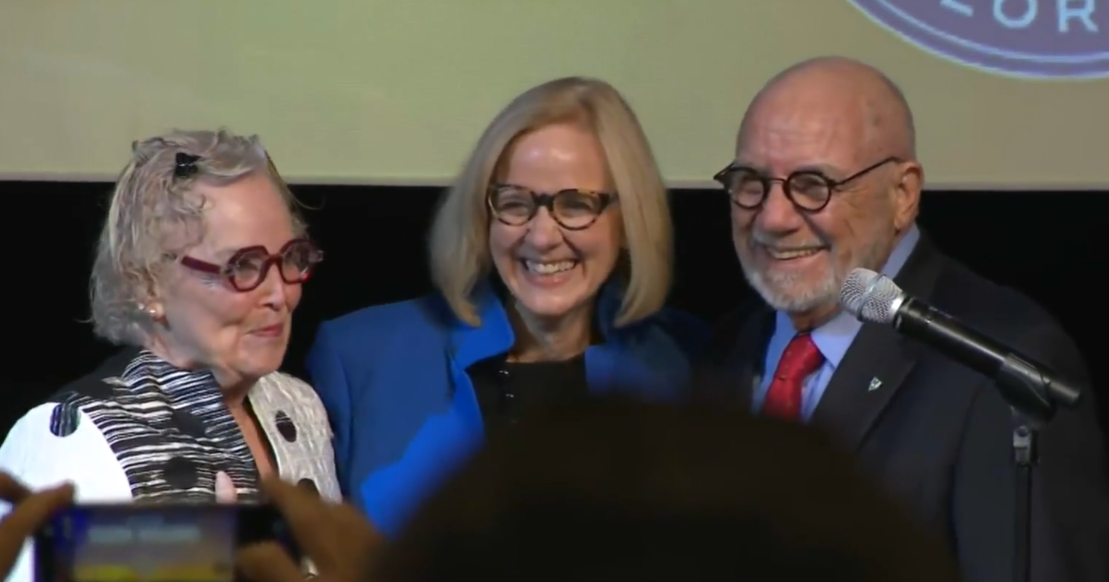MIAMI — When José Medina was a child growing up in Texas, teachers stopped him from talking Spanish in their classrooms. And his mother and father stopped him from speaking English at house.
Medina hardly ever felt like he belonged. But many years afterwards, when he became a teacher himself, Medina says he unwittingly started performing the similar thing.
“I used to be the trainer that mentioned to kids, ‘That’s not the way that you say it.’ No se dice así. For the reason that that is what I was taught,” Medina told CNN in a recent interview.
Medina suggests he’d accurate the way students and even members of his family spoke English or Spanish, and he’d halt them from mixing the two languages.
Now, the 52-yr-previous academic marketing consultant and language researcher is hoping to instruct other people to use a diverse method. He’s performing with college districts across the place to generate and improve twin language programs that worth home languages just as considerably as English. And he’s gotten millions of views and likes on TikTok, and much more than 131,000 followers on the system, by sharing a concept he wishes he’d read a long time back.
“Speaking Spanglish is a superpower,” Medina states. And it really is just one he says hasn’t gotten the attention it warrants, inside of or outdoors the classroom.
“It is anything we have to have to embrace relatively than be frightened of,” he says.
Why he sees Spanglish as a strength
Medina claims there are three methods Spanglish is spoken:
• Alternating between English and Spanish in a sentence.
• Applying or generating terms that combine Spanish and English, these as saying troca (combining the English term truck with a Spanish ending) or planching (combining the Spanish word planchar, which implies to iron, with an English ending).
• Implementing the syntax from one language to the other, such as expressing, “The car red is driving down the road.” (In Spanish adjectives generally arrive immediately after nouns).
Some of Medina’s most popular TikToks rejoice illustrations of these combos.
“If you hear a person talking in Spanglish, will not hate! Be envious – but in a good way,” Medina suggests in a single TikTok, arguing that “multilingual people who talk in Spanglish are working at higher concentrations of cognitive considering” as they mix and match phrases “from their complete linguistic repertoire.”
“Spanglish is not just a haphazard situation in which another person is just mixing the two languages. You will find rhyme and purpose and sample. … It’s a ability,” Medina informed CNN.
Since Medina posted his very first video about Spanglish in Might 2020, it’s been seen additional than 1.3 million moments and garnered extra than 300,000 likes on the system. And he is ongoing to share his feelings on the matter in various posts.
He shares his possess expertise as what he calls a “linguistic oppressor in recovery,” noting that teachers at school and moms and dads at residence are – like he the moment did – usually unintentionally acquiring in the way of kids’ prospective to study and develop when they explain to them to stop speaking Spanglish.
For years, Medina has been a distinguished voice in bilingual education. His DC-region consulting firm, Dr. José Medina Academic Answers, advises college districts throughout the country. He is the coauthor of broadly used guidelines, he’s a researcher and he trains academics, far too. But he suggests the TikTok movies he begun earning on a whim as a pandemic pastime have given him a possibility to attain an even broader viewers.
“I have so lots of people and children that will access out to me and say, ‘Thank you – thank you for getting oneself. Thank you for elevating Spanglish. Thank you for building me comprehend that a lot of this is not my carrying out,'” Medina says.
Another professional calls Spanglish ‘the quickest expanding hybrid language in the world’
Medina is just not the only pro generating a case for Spanglish.
Ilan Stavans, a professor at Amherst College or university, has been pushing for greater recognition of the phenomenon’s import for decades.
Stavans suggests it is extremely hard to know just how many individuals converse Spanglish, but there is no doubt thousands and thousands in the US are frequently conversing in what he phone calls “the speediest expanding hybrid language in the environment.”
Stavans, writer of the 2003 book “Spanglish: The Building of a New American Language” and Spanglish translations of various literary classics, this kind of as “Alicia’s Aventuras en Wonderlandia,” states decades in the past many reacted with surprise and anger when they figured out about his operate.
Now, he states, Spanglish is a considerably superior understood and accepted element of American lifetime.
But that’s not to say it isn’t going to nonetheless have its critics.
“It is really really controversial,” Stavans states, noting that his operate on Spanglish has drawn opposition from some who feel its use undermines English and Spanish.
“But in spite of all all those oppositional voices, Spanglish proceeds to develop quite rapidly,” Stavans suggests.
Stavans traces the origins of Spanglish again “at minimum 150 many years,” to the days soon after the Mexican-American War ended and vast swaths of Mexico grew to become portion of the United States. Now there are more Spanish speakers dwelling in the United States than in Spain. By 2050, there could be much more Spanish speakers in the United States than in any other nation in the globe. And with just about every new Spanish-speaking immigrant group that arrives in the United States, and each individual new generation’s exploration of their identity, Stavans claims, Spanglish carries on and evolves.
“It can be below to remain,” Stavans claims.
A memory of his instructor laughing nevertheless haunts him
But in spite of the deep roots of Spanglish in the United States, Medina says its use was frowned on when he was rising up in El Paso, Texas, and he struggled to match in.
“My Spanish was in no way fantastic ample for those in Mexico, but my English was by no means very good sufficient for those people in this article,” he states.
In elementary university, he was not allowed to speak Spanish, the language he spoke with his Mexico-born moms and dads at dwelling, and his to start with-quality teacher even modified his name – with out inquiring – from José to Joe.
He nonetheless remembers how humiliating that felt.
And he’ll never forget about the way she laughed at him just one day when he admitted he failed to know a phrase in a e-book she’d just go through to the course: serviette.
Even now, many years later on, individuals reminiscences sting – and they’ve trapped with him.
He shares them in a children’s book about his life that some colleges now use in twin schooling programs. In the illustrated e-book of poems, he describes his journey from remaining ridiculed in school to at some point turning out to be a university principal serving a lot of learners who ended up English learners like him.
And he describes the message he explained to students on his to start with day as principal in a Texas elementary university: No subject what language they talk, “they are welcomed and beloved.”
Numerous matters have improved since his times as a student. But Medina fears in some US lecture rooms, little ones are nevertheless being crushed, just as he was in initially quality, and he’s undertaking every thing he can to quit that from occurring.
“We are hurting little ones when we do not in fact leverage almost everything that they bring into the classroom” he suggests.
And TikTok is just one particular of the tools he is employing to thrust for adjust.
Instructors are listening to his information, far too
Medina appears to be like at a grid of nodding faces on his laptop or computer monitor.
He is just defined a key aspect of present-day lesson on Zoom to a team of lecturers from the San Elizario Independent School District outside the house El Paso.
His aim for this training session: the way pupils find the words and phrases they have to have from all the words they know in any language primarily based on context.
Medina claims he had a “lightbulb instant” several years back when he to start with acquired about this thought, recognised as “translanguaging,” from a primary language researcher at the City College of New York.
That investigation, he claims, led him to notice all the times he’d been a “linguistic oppressor.”
“For a extended time, we truly had been less than the misunderstanding that in some way I had like a monolingual person who speaks Spanish inside my intellect following to a monolingual individual that speaks English, and the two shall in no way meet up with,” Medina suggests.
But nowadays, Medina reminds the lecturers from San Elizario that the language bubble within a student’s thoughts includes a combination of phrases they can attract from – from academic language generally preferred in faculty configurations to social language used to chat with good friends.
“We have Spanglish all more than that bubble. And it is alive and at any time-altering. And one particular language never ever starts, and the other by no means finishes,” Medina states. “It is only educational facilities that have taught us to independent language, because we are so English-centered in the United States.”
What he tells teachers to do when learners use Spanglish
So what need to academics do if a scholar states a word in Spanglish, or other languages they have acquired to discuss outdoors the classroom?
Assistance them, Medina claims, by listening to what they are saying and making use of it as a jumping off point to investigate and explain how to say the very same factor in other ways.
“The Spanglish phrase doesn’t have to be spit on or eradicated in get for that to happen. … It doesn’t necessarily mean that we really don’t instruct kids to navigate unique registers,” he suggests. “It just indicates that we really don’t have to wipe out the language of the home and the local community in order to do that.”
Susana Frescas, San Elizario’s tutorial applications administrator, states that philosophy has resonated with lecturers in her district – and she’s noticed how much it allows college students in the classroom.
“It is really just about respecting and validating. … It can be not about, ‘no, it can be not explained like that,’ the place the children are afraid to even talk,” she says. “It is really a kinder, gentler way.”
He sees his very first-quality image as a reminder
As Medina proceeds his efforts to spread his information, he keeps his 1st-grade course image in the signature of every single e mail he sends, and places it on the to start with slide of each presentation he would make.
To Medina, that photograph of a minimal boy with a bowl haircut is a reminder of the trauma he experienced as a youthful university student and how far he’s occur. It is really also a reminder of how far the schooling method nonetheless has to go to make guaranteed small children are supported and encouraged to be who they are.
In his TikTok video clips, Medina provides commentary in English and Spanish. Sometimes he sprinkles in words from other languages, also.
But Spanglish, he suggests, is the language of his heart. And now, he is happy to communicate it.



